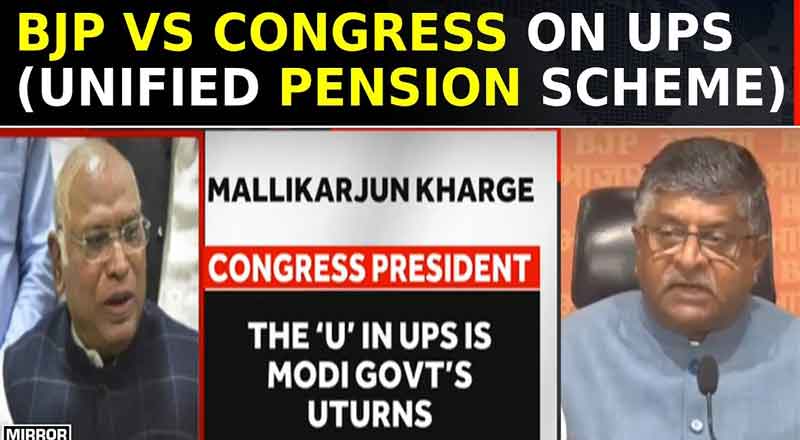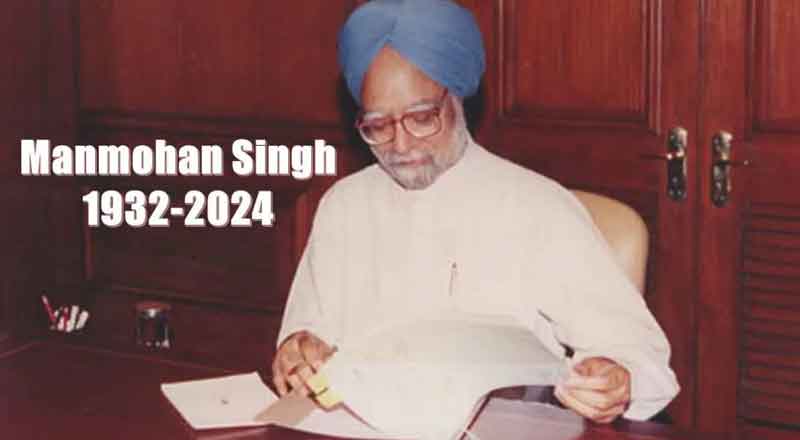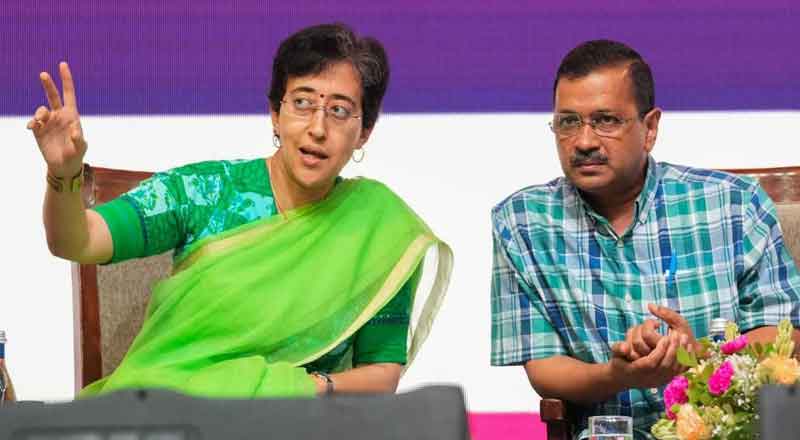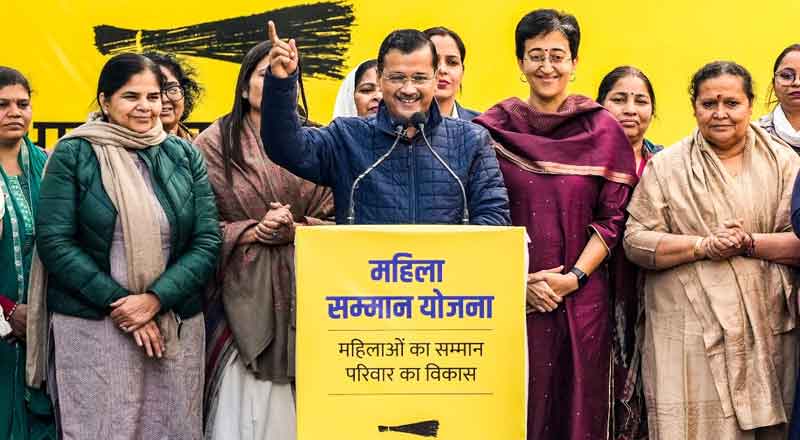The debate surrounding pension schemes in India has taken center stage once again, with the Bharatiya Janata Party (BJP) and the Congress engaging in a heated exchange. The BJP recently criticized the Congress, particularly its president Mallikarjun Kharge, over comments related to the Unified Pension Scheme (UPS) and the old pension scheme (OPS). This article delves into the crux of this political battle, exploring the arguments from both sides and the implications for government employees.
BJP’s Response: A Call for Accountability
The U-turn Jibe and BJP’s Retort
The BJP’s response came swiftly after Kharge’s remarks, where he accused the Modi government of making a “U-turn” on its pension policies. Senior BJP leader Ravi Shankar Prasad led the charge, questioning why the Congress has not fulfilled its promise to reinstate the old pension scheme in states like Himachal Pradesh, Karnataka, and Telangana where it holds power. Prasad highlighted that despite Congress’s grand promises during elections, particularly in Himachal Pradesh, the implementation of OPS remains elusive.
Prime Minister Modi’s Role in Pension Reforms
Ravi Shankar Prasad praised Prime Minister Narendra Modi for his role in the introduction of the Unified Pension Scheme (UPS), emphasizing that the Modi government does not take “ad-hoc decisions” but instead makes well-considered moves in the public interest. He pointed out that the Congress has been vocal about OPS in its political campaigns but has not shown the same commitment in action.
The Accusation of False Promises
The BJP did not hold back in accusing Rahul Gandhi and the Congress of “bluffing” the public with unfulfilled promises. Prasad questioned whether the Congress would only make announcements or actually implement the policies it champions. The BJP’s stance is clear: the Congress, despite its rhetoric, has failed to deliver on its pension promises.
Congress’s Position: Criticism of the Modi Government
Kharge’s Critique of UPS
Mallikarjun Kharge’s criticism of the Modi government focused on the timing and nature of the Unified Pension Scheme. He described the “U” in UPS as standing for the government’s “U-turns,” implying that the Modi administration had reversed its stance under public pressure. Kharge’s comments came after the Union Cabinet approved a new pension scheme offering a 50% assured pension of salary for employees who joined after January 1, 2004.
The Context of the Pension Debate
The discussion around UPS comes in the wake of several non-BJP states deciding to revert to the DA-linked Old Pension Scheme (OPS). Kharge’s swipe at the government is rooted in the belief that the BJP’s pension policies are inconsistent and reactionary. However, the BJP counters that the UPS has been under consideration since 2023, well before the alleged “U-turn.”
Understanding the Unified Pension Scheme (UPS)
What is the UPS?
The Unified Pension Scheme represents a significant shift in India’s pension landscape. It guarantees an assured minimum pension of Rs 10,000 per month upon superannuation, provided the employee has served for a minimum of 10 years. This scheme benefits 23 lakh central government employees, with the potential to extend to 90 lakh employees if state governments choose to adopt it.
Key Features of the UPS
Union Minister Ashwini Vaishnaw outlined several key features of the UPS:
- Assured Family Pension: In the event of an employee’s death, their spouse will receive an assured family pension.
- Inflation Indexation: The assured pension, family pension, and minimum pension will be indexed to inflation, ensuring that they retain their value over time.
- Transformation from NPS: The UPS marks a transformation from the National Pension System (NPS), which previously offered pensions based on contributions from both employees and the government.
Impact on State-Level Pension Policies
The UPS has been introduced against a backdrop of states governed by non-BJP parties reverting to the Old Pension Scheme. Employee organizations in various states have also been vocal about their demand for OPS, which guarantees a defined benefit based on the last drawn salary.
Conclusion: The Future of Pension Politics in India
The clash between BJP and Congress over pension schemes highlights the significance of pension reforms in Indian politics. As the BJP questions Congress’s commitment to OPS in states where it holds power, the debate over pension policies is set to continue. The Unified Pension Scheme, with its assured benefits and inflation protection, represents the Modi government’s approach to addressing the needs of government employees while maintaining fiscal responsibility.
In the coming months, the discourse around pension schemes will likely influence political narratives, particularly as states prepare for upcoming elections. For now, the BJP and Congress remain locked in a battle over who can best deliver on promises of financial security for India’s public servants.
If you want to read more information about how to boost traffic on your website just visit –> The Insider’s Views.





